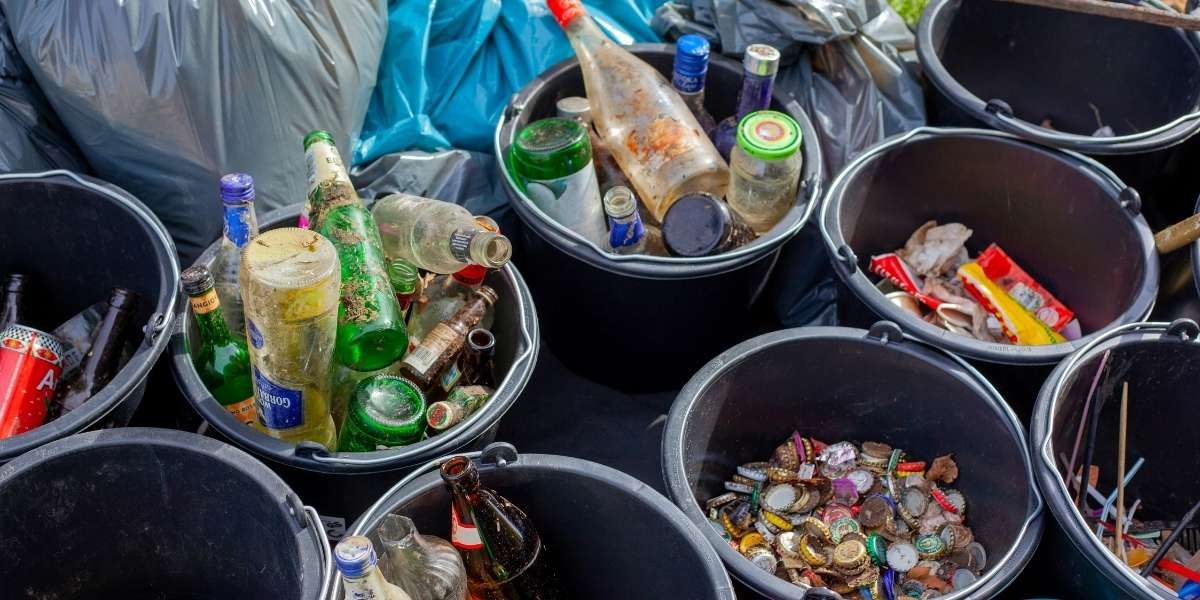Innovations in Waste Management
Waste management has come a long way in recent years, evolving from basic trash collection to innovative solutions aimed at reducing waste, conserving resources, and minimizing environmental impact. As cities grow and the volume of waste increases, the demand for more effective methods to manage waste has become critical. Turning trash into treasure is not just a catchy phrase but a reality that many companies and organizations are working to achieve. Through waste management innovations, we are seeing new technologies, policies, and practices that help reduce the burden on landfills and create new opportunities from discarded materials.
Read Also: Authenticity and Value: Smart Art Collecting Tips for 2025
What Are Some Cutting-Edge Waste Management Technologies?
With technology rapidly advancing, the waste management industry is seeing significant improvements. One of the most notable innovations is the development of waste-to-energy systems, which convert organic waste into usable energy. These systems use processes such as anaerobic digestion and incineration to produce biogas or electricity from waste materials, reducing the need for landfills while providing a sustainable energy source.
Another breakthrough technology in waste management is the use of smart bins. These bins are equipped with sensors that can monitor waste levels and automatically notify waste collectors when they need to be emptied. This smart approach not only reduces labor costs but also helps optimize collection routes, making the process more efficient and environmentally friendly.
How Can Recycling Practices Be Improved?
Recycling has always been a key component of waste management. However, traditional recycling systems have limitations, such as contamination of materials and inefficient sorting processes. Innovations in recycling technology are addressing these challenges and improving overall efficiency.
For instance, robotic sorting systems are now being implemented at recycling facilities. These robots use artificial intelligence to identify and sort materials more accurately and quickly than human workers. This reduces the chances of contamination and ensures that more materials are recycled properly.
Additionally, chemical recycling is gaining traction as a way to recycle materials like plastics that are difficult to process using traditional methods. Chemical recycling breaks down plastics into their chemical components, allowing them to be reused to create new products. This method has the potential to greatly improve recycling rates and reduce plastic waste.
What Role Do Circular Economy Models Play?
A circular economy is a system where products and materials are reused, repaired, and recycled rather than discarded. This model has become a focal point for waste management strategies, as it promotes sustainability and reduces the need for new raw materials.
One of the key innovations within this model is the development of closed-loop systems. In a closed-loop system, products are designed with their end-of-life in mind, ensuring that they can be easily recycled or repurposed. For example, some companies are creating products from recycled materials that can be reused or repurposed at the end of their lifecycle, creating a sustainable flow of materials.
This approach not only reduces waste but also encourages businesses to be more responsible in their product design and production processes. By adopting circular economy principles, companies can contribute to reducing waste, conserving resources, and minimizing environmental harm.
How Are Governments Supporting Waste Management Innovations?
Government policies play a crucial role in supporting waste management innovations. Many countries and cities are implementing regulations and incentives to promote sustainable waste practices. For example, some cities have introduced pay-as-you-throw systems, where residents are charged based on the amount of waste they generate. This encourages people to reduce, reuse, and recycle more, as it directly impacts their costs.
Governments are also investing in research and development for new waste management technologies. By funding innovative projects and offering incentives for businesses that adopt eco-friendly practices, governments are helping drive the transition to more sustainable waste management systems.
In addition, many governments are setting ambitious recycling goals and pushing for the implementation of waste reduction programs. These efforts are driving innovation and encouraging both private and public sectors to collaborate on developing solutions to manage waste more effectively.
How Can Individuals Contribute to Waste Management Solutions?
While large-scale innovations are critical, individuals also have a significant role to play in improving waste management. By adopting simple habits like composting organic waste, reducing single-use plastics, and supporting companies that prioritize sustainability, individuals can make a positive impact on the environment.
Educating communities about the importance of waste reduction and recycling is also essential for achieving long-term change. Many organizations are working to raise awareness and provide resources that help people adopt better waste management practices in their daily lives. Through collective efforts, individuals can contribute to creating a more sustainable and circular economy.
Read Also: How to Conduct a Sustainability Audit for a Greener Future
Turning Trash Into Treasure
Innovations in waste management are helping transform waste from a burden into a valuable resource. With advancements in technology, recycling, and the circular economy, we are moving toward a future where waste is minimized, resources are conserved, and environmental impacts are reduced. As these innovations continue to evolve, it is clear that waste management will play a crucial role in shaping a more sustainable world. By embracing these innovations and adopting better practices, we can all contribute to turning trash into treasure and building a greener future.







